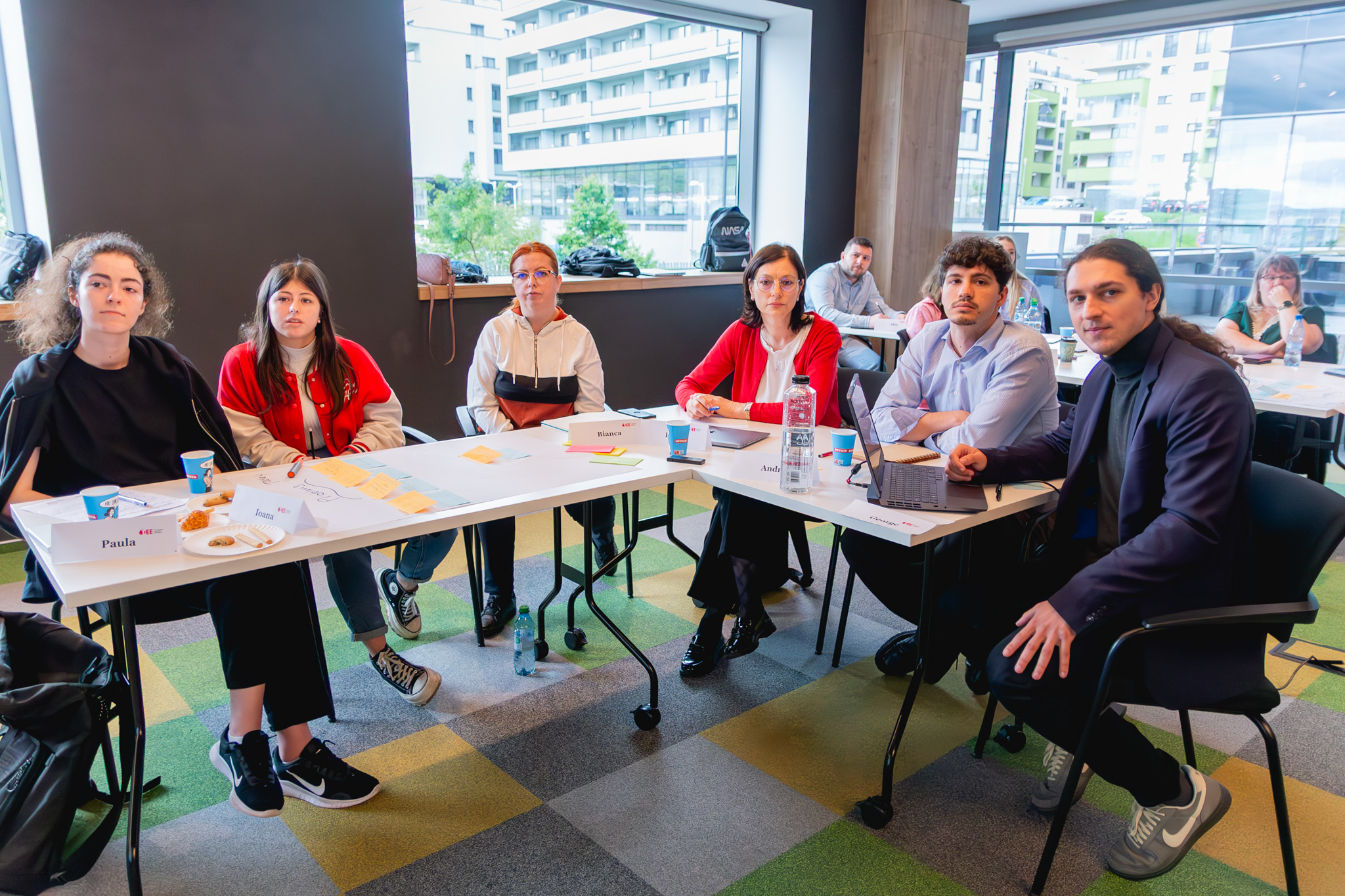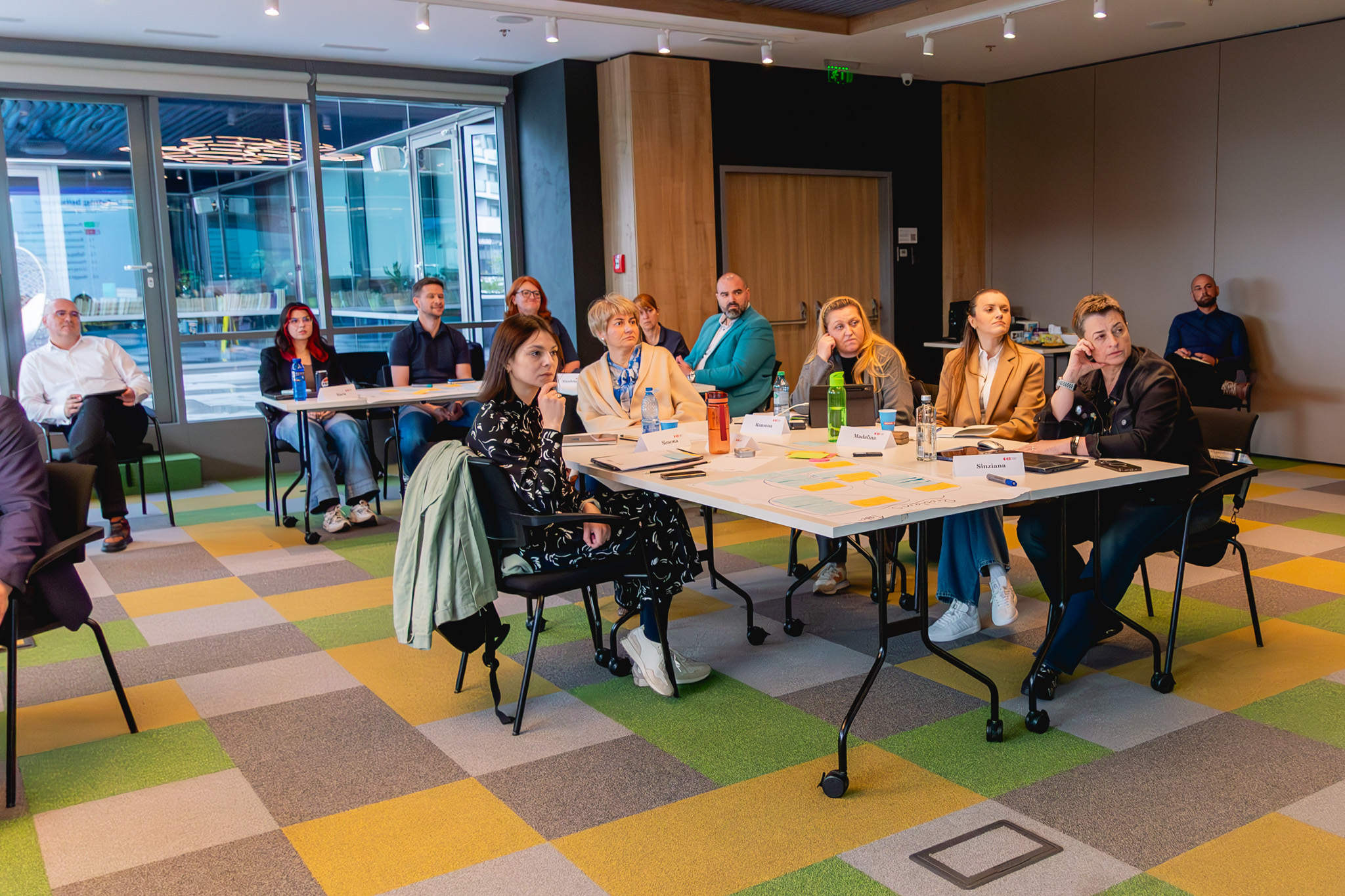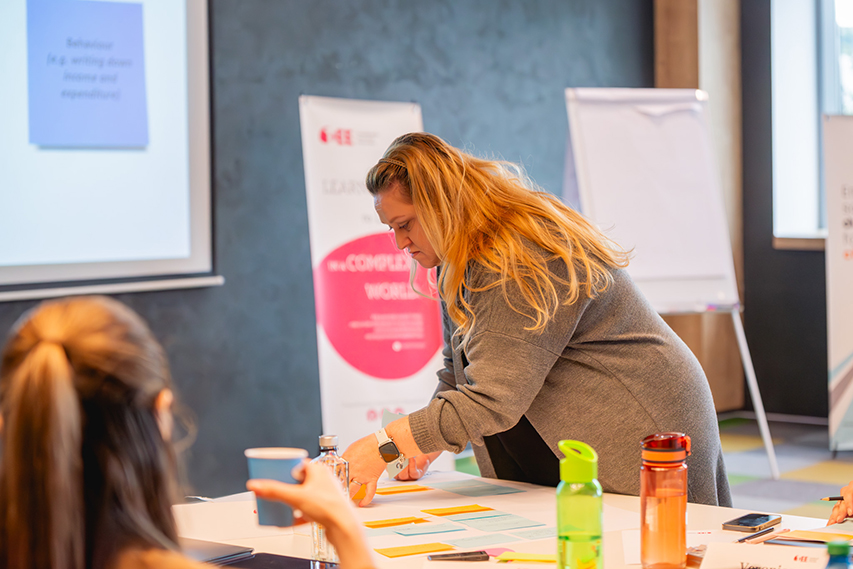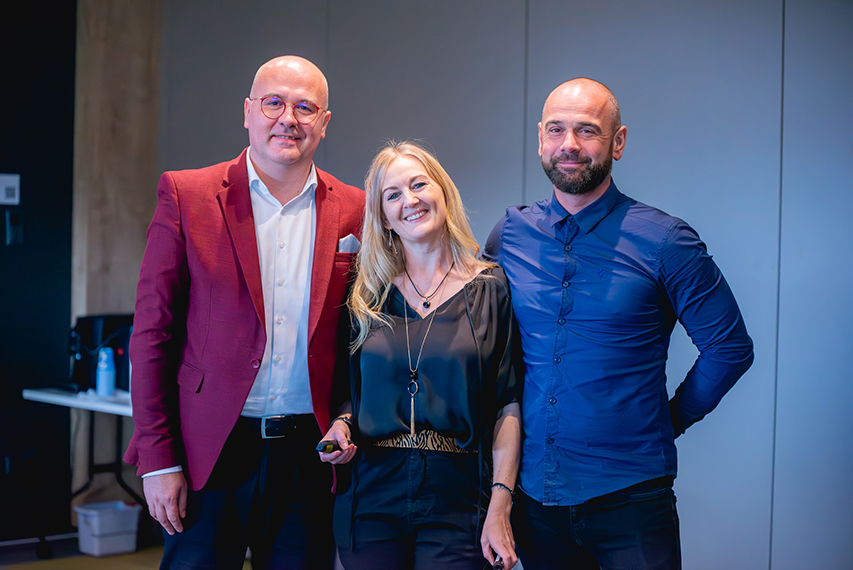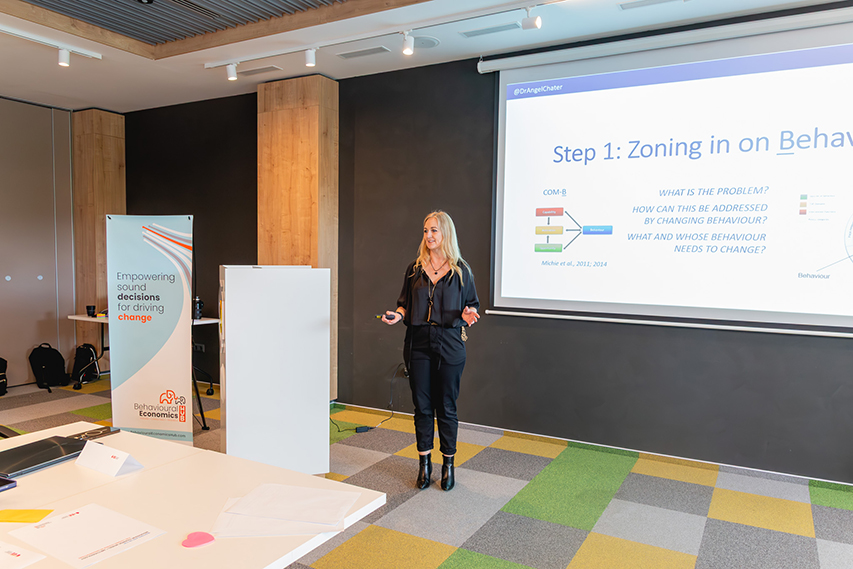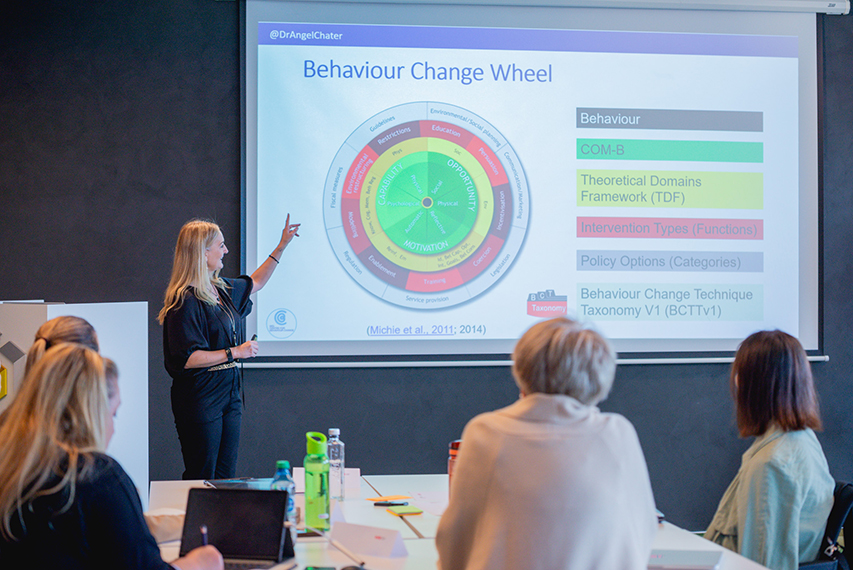
CONCEPT
If you think that, to reach your business objectives, you have to rationally manage the rational people around you (customers, employees, colleagues), then you are totally wrong. In fact, the day-to-day business context is dominated by Irrational, rather than Rational, decision-making, and you have to deal with it!
The number one reason why sometimes even brilliant ideas fail is that they do not start at the behaviour level. And some researchers and practitioners like to call it the missing layer. Because if you truly understand human behaviour and the decision-making process (with its abundance of irrationalities), then you will be able to influence it predictably … And achieve the results you are pursuing!
Thus, during this three-month executive training, you will be immersed in the latest know-how and practices in behavioural science, which will support you in getting the people around you to make needed choices or engage in the desired behaviours.
Designed by Behavioural Economics HUB and TEE, in partnership with University College London (UK), this course is the first and only Executive Training in Romania on applied behavioural science, with the aim of smartly growing your business.
The University of Buckingham validated this programme and will offer the graduation diploma.
TARGET GROUP
The course was designed for middle and top managers, decision-makers, and industry leaders across both private and public sectors. Whether you’re in sales, marketing, product management, customer relations, or HR, this course offers practical insights and innovative strategies. Based on feedback from our inaugural executive class, it’s a must for anyone working with data, aiming to drive business innovation and make informed decisions.
CONTENT
The course is built on two major blocks:
- one providing the necessary theoretical and conceptual knowledge regarding the Behavioural Economics (Module 1 & 2), on top of which
- the practical abilities block is built, in this case with the use of the BCW™ methodology (Behaviour Change Wheel) for behaviour change interventions (Modules 3 & 4).
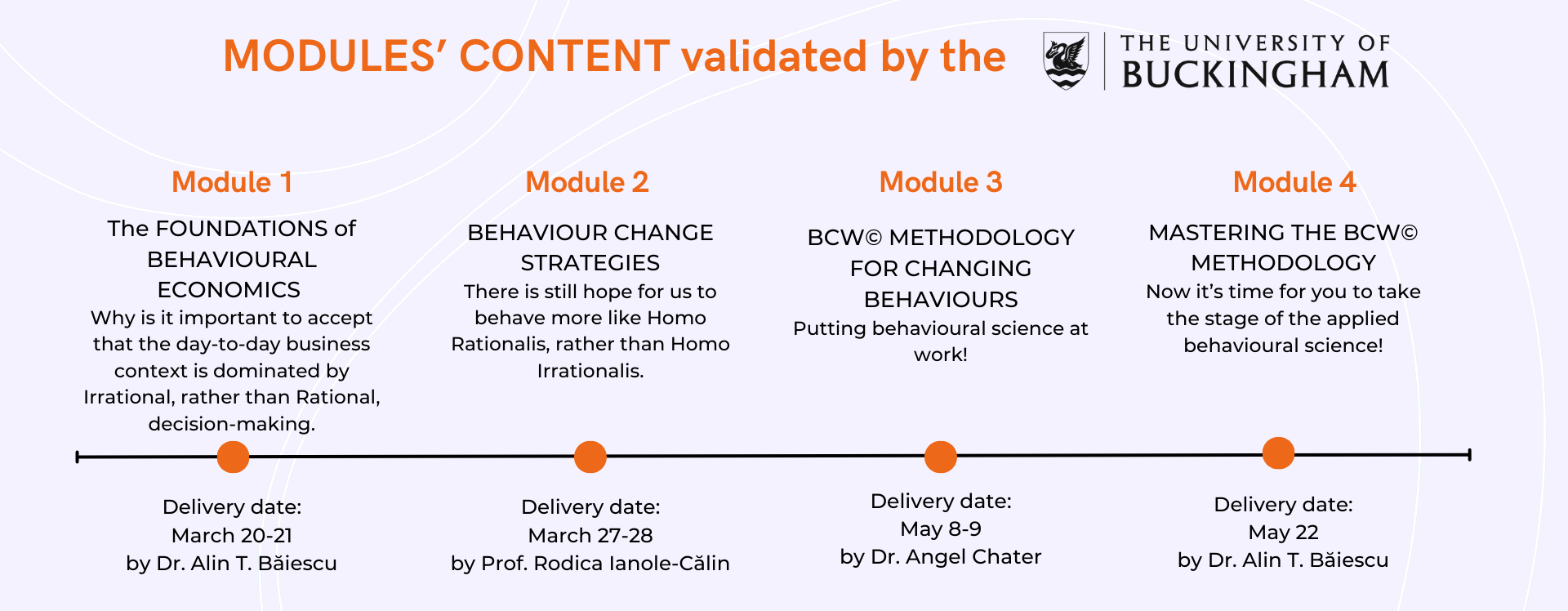
MODULE 1 [March, 20-21]
The FOUNDATIONS of BEHAVIOURAL ECONOMICS - Why is it important to accept that the day-to-day business context is dominated by Irrational, rather than Rational, decision-making
At the end of this module participants will:
- Understand why people behave irrationally (Automatic vs. Reflexive system of thinking);
- Know the most frequent 25 cognitive biases that occur during the decision-making process;
- Be able to recognize and analyse the situations in which irrational behaviors occur, and to evaluate the cognitive biases that lead to those situations.
MODULE 2 [March 27-28]
BEHAVIOUR CHANGE STRATEGIES - There is still hope for us to behave more like Homo Rationalis, rather than Homo Irrationalis
At the end of this module participants will:
- Understand the characteristics of inter-temporal choices (present versus future evaluations), and be able to evaluate various types of self-control challenges (procrastination, delay discounting, present bias etc.);
- Understand the concepts of choice architecture and nudging as a potential complementary behavioural change strategy (next to incentives, persuasion and information);
- Be able to identify various nudge typologies (defaults, social norm nudging) and implement them based on a preliminary context analysis
- Be able to design a behavioural change intervention including elements of nudging and boosts.
MODULE 3 [May 8-9]
The BEHAVIOUR CHANGE WHEEL™ Approach - Putting behavioural science at work! Develop the knowledge and skills necessary for successfully implementing a behaviour change intervention by using the BCW™ methodology (framework), related to a real business problem.
At the end of this module, participants will:
✔ Understand how the BCW™ methodology works for changing behaviour;
✔ Be able to analyse a business situation that is suitable for a behaviour change intervention by using the BCW™ methodology;
✔ Develop the ability to design, deliver and/or evaluate a behaviour change intervention using the BCW™ methodology.
Main topics:
- Introduction into the BCW™ methodology for changing behaviour;
- The steps that are followed in applying the BCW™ methodology:
- Identify the target behaviour (the one that, if changed, will generate benefits for both the individuals and the organization);
- Create a ‘behavioural diagnosis’ by analyzing the factors influencing this target behaviour based on the COM-B Model; Identify of the most appropriate intervention types (education, persuasion, incentivization, coercion, training, restriction, enablement, modelling, environmental restructuring);
- Consider the policy options that could also support the desired behavioural intervention.
- Select behaviour change techniques and mode of delivery, ensuring that target actions are SMART.
- Apply the APEASE criteria for intervention delivery and evaluation (identify the Acceptability, Practicability, Effectiveness, Affordability, Spillover effects, and Equity)
ABOUT THE BCW™ METHODOLOGY
Designed and developed by an experienced team from the University College London – Centre for Behaviour Change (UK), the BCW™ (Michie et al., 2011; 2014) is a powerful tool for understanding and changing behaviour. It relies on decades of research and practice, incorporating the most recent advances in behaviour change intervention design, and can assist in designing and implementing behaviour change intervention strategies in your organization.
References: Michie, S., van Stralen, M. M., & West, R. (2011). The behaviour change wheel: a new method for characterizing and designing behaviour change interventions. Implementation Science: 6, 42. https://doi.org/10.1186/1748-5908-6-42
Michie S, Atkins L, West R. (2014) The Behaviour Change Wheel: A Guide to Designing Interventions. London: Silverback Publishing. www.behaviourchangewheel.com.
MODULE 4 - Graduation Project [May 22]
MASTERING THE BCW™ METHODOLOGY - Now it’s time for you to take the stage of applied behavioural science!
In this part of the training, participants are required to develop a behavioural intervention project addressing a specific business challenge, present their project to the class, and receive constructive feedback.
At the end of this module, participants will:
- Possess the necessary knowledge and skills for presenting convincingly the behavioural change project they have developed, to obtain approval for implementation from the business stakeholders.
- Have the ability and motivation to use the BCW™ methodology in future business projects;
- Be able to adequately analyse and evaluate other behavioural change intervention projects.
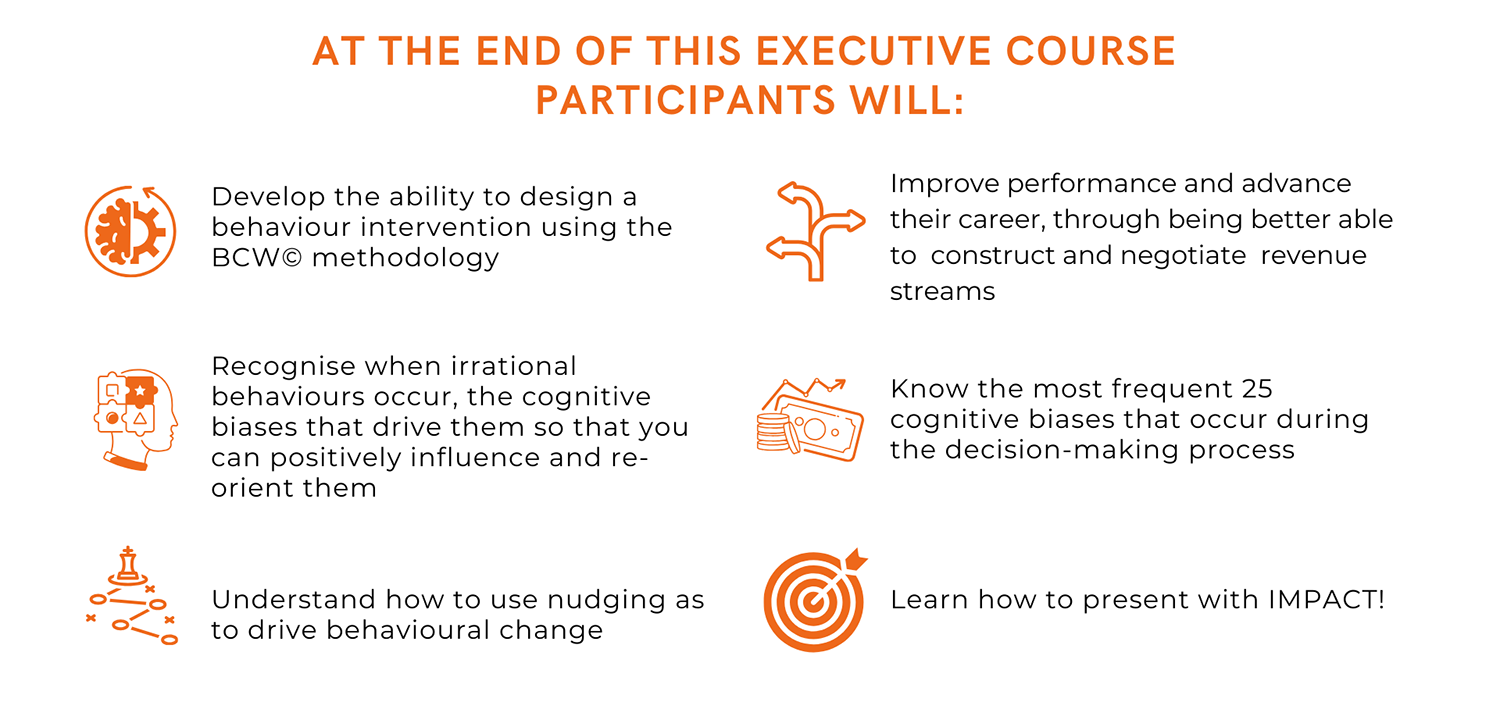

Dr. Alin T. Băiescu, MBA is the Programme Director of the “Behavioural Economics in action” training, and also the lecturer for Module 1.
Dr. Băiescu has around 25 years of experience in the financial sector, in middle and top management positions, within well-known multinational corporations (AIG / MetLife, Raiffeisen, Eureko, AEGON).
In parallel, he has been developing an academic career: Alin holds both a PhD and an Executive MBA diploma, being also an Associate Professor at Babeș-Bolyai University (Cluj-Napoca), and for the University of Buckingham MBA delivered in Romania.
Also, Alin Băiescu has been the author, co-author, or coordinator of 10 books, in areas such as insurance, management and business.
Prof. Rodica Ianole-Călin is an applied microeconomist, researcher, and educator, focusing on how to best put at use behavioural and data analytics insights to improve personal and societal well-being. She is a Professor of Applied Economics at the University of Bucharest and a lecturer for Module 2.
In her research work, she examines attitudes, decisions, and behaviors related to sustainable consumption and lifestyles, health, financial decision-making, informality, and social norms.
She teaches behavioral and experimental economics, game theory, and topics in health and environmental economics, at the Faculty of Business and Administration, where she co-founded the first master program in behavioral economics from Romania.
Prof. Angel CHATER, Ph.D. is a registered Health Psychologist and Sport and Exercise Psychologist with the Health and Care Professions Council (HCPC), a Chartered Psychologist with the British Psychological Society (BPS), and an expert trainer in Behaviour Change with SEPIA Health. Angel is a Professor of Health Psychology and Behaviour Change, holding a split academic role at the University of Bedfordshire as the Director of the Institute for Sport and Physical Activity Research, Centre for Health, Wellbeing and Behaviour Change and at UCL Centre for Behaviour Change as the Co-Director of the Policy Research Unit in Behavioural and Social Sciences, leading research on Optimising Integrated Care Services (OptICS) for cardiovascular disease risk and mental health concerns. Her expertise is in intervention design, delivery, evaluation, and adoption systems (IDDEAS), encapsulating the use of psychological theories, models, and techniques to change a range of behaviours and outcomes with extensive experience applying the Behaviour Change Wheel in real-world practice.
You can read more about
the Behaviour Change Wheel
here:
Michie, S., van Stralen, M. M., & West, R. (2011). The behaviour change wheel: a new method for characterising and designing behaviour change interventions. Implementation Science, 6(1), 42. https://implementationscience.biomedcentral.com/articles/10.1186/1748-5908-6-42
West, R., Michie, S., Atkins, L. et al. (2019). Achieving Behaviour Change: A guide for local government and partners. London: Public Health England.
Or, this PDF File


Photos from last year edition
